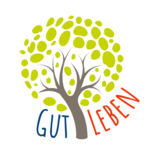Gut-Leben
Gut-Leben
Implementation, barriers and recommendations for further development of advance care planning (according to § 132g SGB V) for the last phase of life in nursing homes in Germany (Gut-Leben)
Scientific sub-project leader:
| Copyright: Hanna Röwer/Institut für Allgemeinmedizin und Palliativmedizin/MHH |
Research assistants:
- Hannes Jacobs (University of Oldenburg, Department of Health Services Research, Division of Outpatient Care and Pharmacoepidemiology)
- Tanja Schleef (MHH, Institute for General Medicine and Palliative Medicine)
- Anna Völkel (University of Oldenburg, Department of Health Services Research, Division of Rehabilitation Science)
Duration:
- 07/2022 – 06/2025
Project description:
The health care of the currently approx. 800,000 people living in nursing homes in their last phase of life are considered to be problematic. With the introduction of § 132g SGB V - advance care planning for the last phase of life - nursing homes can offer corresponding consulting services have the costs covered by statutory health insurance of their residents.
Because it has not yet been investigated whether the change in the law has had an impact on care practice in the meantime, the Gut-Leben project would like to determine the implementation to date of the options for advance care planning for the last phase of life in the nursing home setting that was created by law in 2018, as well as develop proposals for further development in line with practice.
In five different work packages, relevant actors in nursing homes will be asked about barriers and facilitating factors for the implementation of these legal requirements. In addition, characteristics of counseling sessions and care paths at the end of life will be evaluated and the extent to which the performance records required for billing can be used scientifically will be investigated. Furthermore, routine data from new nursing home admissions will provide information on which characteristics may be relevant for future care planning. The findings obtained in this process and focus groups, individual interviews, and meetings of a practice advisory board will be incorporated into recommendations for further care development.
If successful, the Gut-Leben project will improve people’s health care in their final phase of life in a nursing home, because deficits will be identified and recommendations for further development will be developed. Furthermore, it is possible to transfer the results of the project to nursing homes throughout Germany.
Consortium partners:
- Hannover Medical School (MHH), Institute for General Medicine and Palliative Medicine
- AOK Lower Saxony (Dr. PH Jona Stahmeyer)



